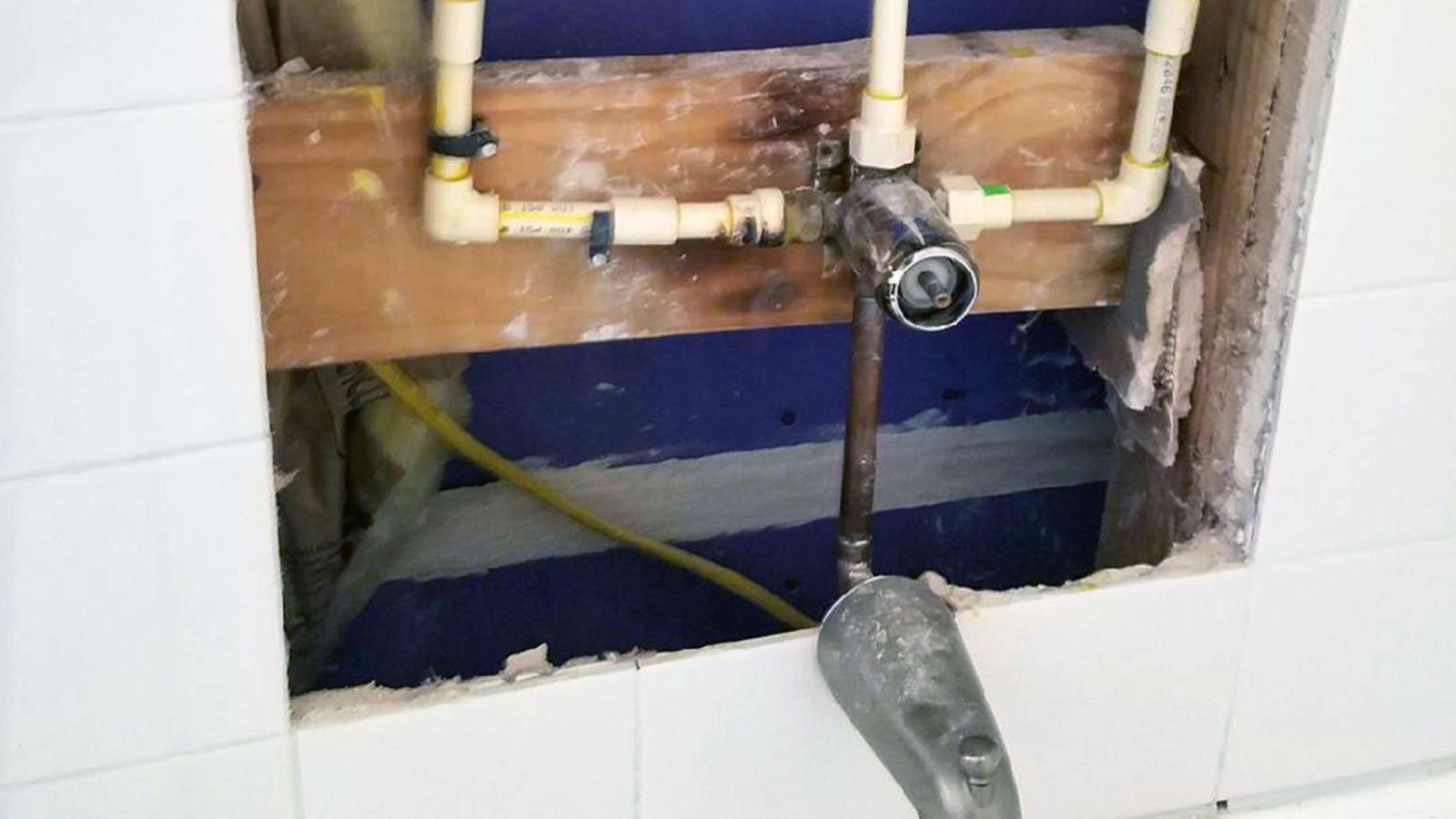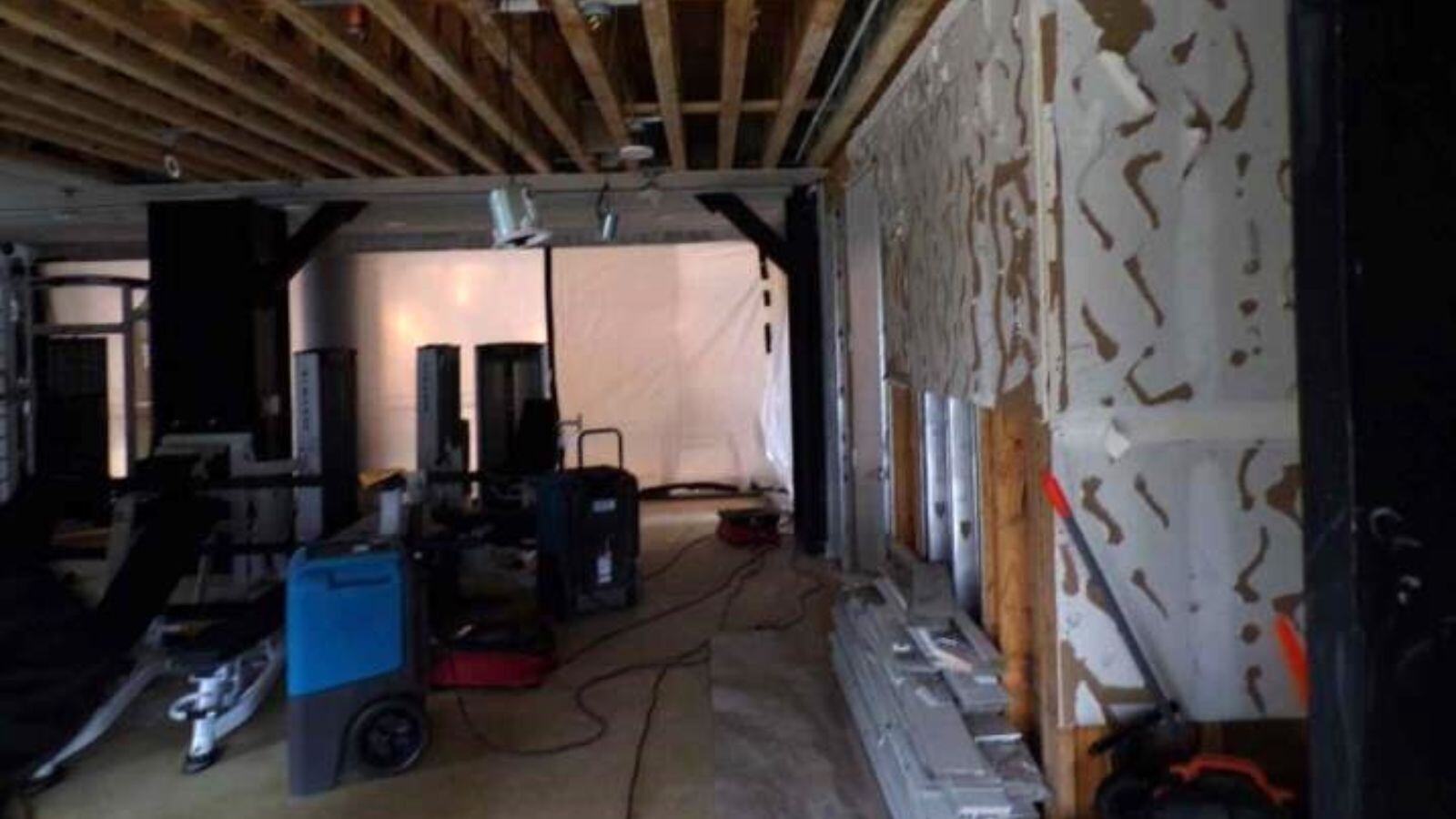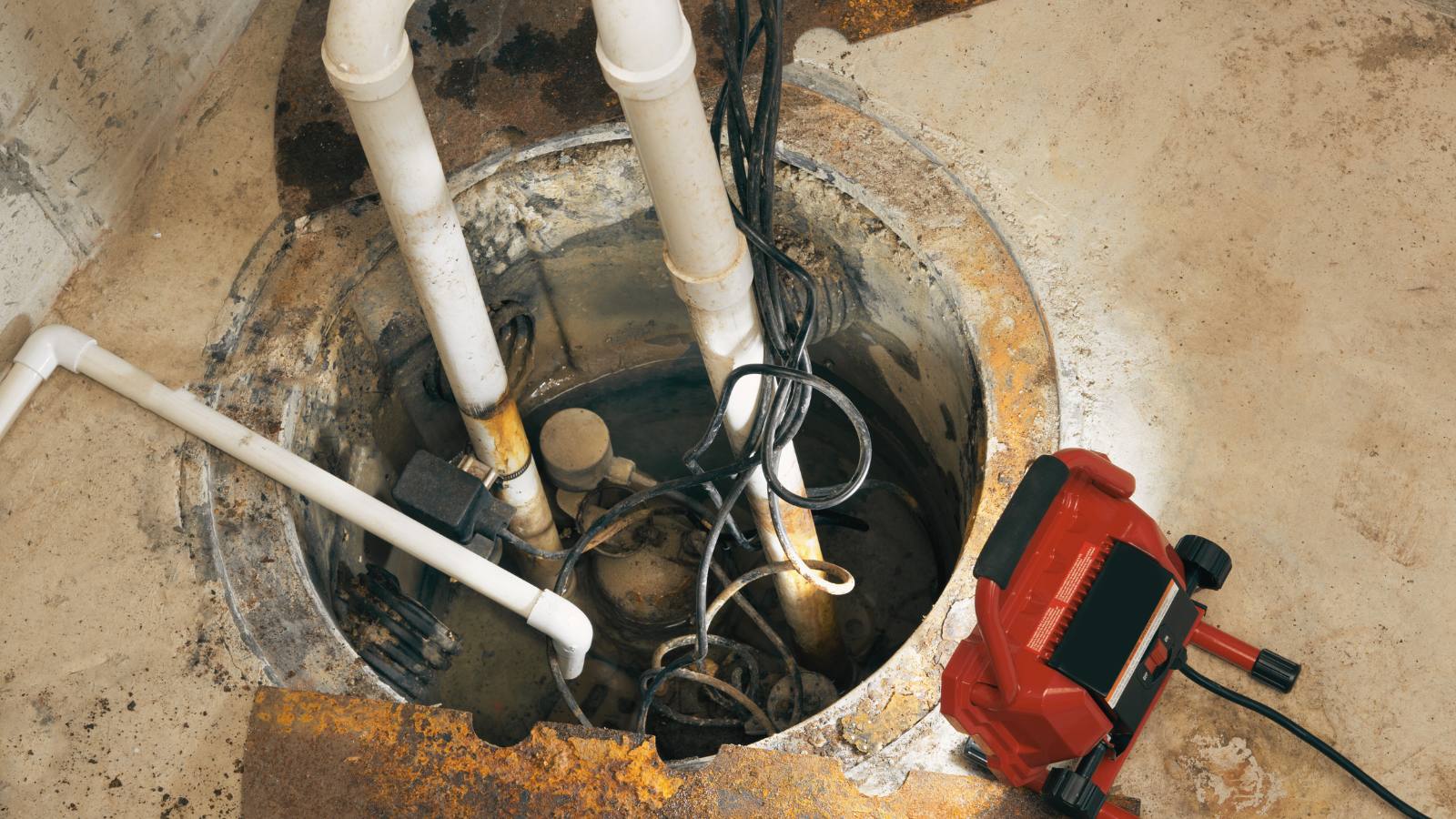1 min read
CRC Restores Off-Campus Housing After Frozen Pipes Burst
Over the holidays, an Arctic blast impacted much of the U.S., including the Blacksburg, Virginia, area. This extreme weather event caused...
5 min read
Sarah Chadwick
January 21, 2026

Frozen pipe bursts are a costly and disruptive winter emergency for businesses. According to The Hartford, water and freezing damage represent approximately 22% of small-business property claims, with significant financial and operational impact.
This 2026 guide provides commercial building managers, facility teams, and property owners with practical steps to prevent frozen pipes, detect early warning signs, and respond quickly if a freeze or burst occurs.
You’ll learn:
How to prevent frozen pipes in commercial buildings
Key temperature thresholds for freezing and drip prevention
How to identify early signs of pipe freezing
Safe response steps if pipes freeze or burst
Frozen pipes are not just a maintenance issue, they are a business continuity risk. Commercial buildings experience higher loss severity than homes because systems are larger, harder to monitor, and often unattended overnight or on weekends.
Commercial properties face higher risk because:
Long pipe runs in exterior walls, ceilings, and mechanical rooms freeze faster
Vacant suites and after-hours shutdowns allow temperatures to drop unnoticed
Fire sprinkler and suppression lines are hidden and difficult to inspect
Water damage from burst pipes can lead to:
Facility downtime and lost revenue
Mold and air quality issues
Damage to equipment, inventory, and IT infrastructure
Water loss events are common in commercial properties because leaks can go undetected for hours, making early detection critical.²
Effective prevention combines temperature control, insulation, monitoring, and emergency planning. The following strategies are industry best practices for commercial facilities.
Commercial pipes are vulnerable once air temperatures drop near freezing. Even a short exposure to temperatures below 32°F can start ice formation, while prolonged periods below 20°F dramatically increase the risk of frozen or burst pipes. Maintaining interior temperatures above 55°F in all areas helps protect pipes in basements, mechanical rooms, and exterior walls.

Proper insulation significantly reduces freeze-related losses. Pipes in exterior walls, mechanical rooms, sprinkler risers, and water tanks should be insulated using UL-listed pipe sleeves or professionally installed heat tracing. Insulation helps maintain water temperature above freezing, especially in unheated or low-traffic areas.²
Trapped cold air is a leading cause of hidden freeze-ups in cabinets, risers, and chases. Even insulated pipes can freeze if airflow is restricted.
Best practices include:
Opening cabinet doors under sinks in restrooms and break areas
Keeping access panels open near plumbing chases
Avoiding tightly sealed enclosures around active water lines
Exterior plumbing accounts for a high percentage of first-time freeze failures. These lines are directly exposed to wind and subfreezing air.
Before winter:
Shut off and drain outdoor hose bibs to prevent water from freezing in the pipes.
Winterize irrigation and pressure washing systems to remove water from outdoor lines.
Install frost-proof faucets and vacuum breakers to protect plumbing from freezing and backflow.
Allowing water to move through vulnerable pipes reduces pressure buildup behind ice blockages.
Let both hot and cold faucets drip at a slow, steady trickle — roughly one drop per second or a pencil-thin stream.
Only a small continuous flow is needed to prevent freezing while minimizing water waste.
Winter storms are the leading cause of extended cold-weather power outages in the U.S. Without heat, pipes can freeze within hours.
If your building loses power:
Shut off the main water supply if heat will be lost for several hours
Drain water lines and open faucets
Use backup generators on boilers and circulation pumps
Place monitored space heaters in mechanical rooms (never unattended)
Vacant properties represent one of the highest-risk categories for frozen pipe bursts.
To reduce exposure:
Maintain building temperatures at or above 55°F (13°C)
Install remote temperature and leak sensors
Schedule daily inspections of vacant suites
Clearly label and map all water shut-off valves
Early detection often prevents a rupture. Frozen pipes usually show warning signs hours before failure.
Watch for:
Reduced or no water flow from faucets
Frost buildup or condensation on exposed pipes
Strong sewer or metallic odors from drains
Banging, whistling, or gurgling sounds
Improper thawing methods frequently cause secondary pipe failures and fires. Avoid these dangerous mistakes:
❌ Do not use blowtorches, open flames, or propane heaters
❌ Do not hammer, strike, or puncture frozen pipes
❌ Do not ignore slow-flowing fixtures — pressure builds rapidly
Follow professional thawing procedures for safety and to prevent secondary damage.If you suspect frozen pipes, act immediately to reduce pressure and prevent rupture.
Turning off the main valve lowers internal pressure and reduces the chance of bursting when thawing begins.
Inspect exterior walls, ceilings, mechanical rooms, and loading docks for frost, condensation, or bulging.
Use approved methods such as hair dryers, radiant heaters, or warm towels. Always thaw from the faucet side toward the blockage.
Open fixtures allow pressure to escape and help reveal cracks early before full failure occurs.

FEMA classifies burst pipes as an immediate life-safety and property emergency. Fast response significantly limits damage.
This single action can reduce total water damage by more than 50%.
Water near electrical systems creates serious shock and fire hazards.
Prioritize moving servers, manufacturing equipment, records, and merchandise away from standing water.
Standing water can cause structural damage and mold growth within 24–48 hours.
Early professional mitigation often reduces total recovery costs by 30–60% compared to delayed response.
Proper documentation speeds claims and reduces disputes. Insurance carriers recommend:
Photographing all damage before cleanup
Keeping a written timeline of events
Saving mitigation and repair invoices
Reporting losses immediately through your carrier’s emergency line
Maintain indoor temperatures above 55°F at all times, even in unoccupied areas, basements, and attics. Insulate all exposed plumbing, especially pipes in exterior walls, crawl spaces, and mechanical rooms. Ensure air can circulate around pipes by opening access panels or cabinet doors. During extreme cold, allow faucets to drip slowly to relieve pressure, and check vacant spaces regularly for signs of freezing.
Pipes begin to freeze when air temperatures drop to 32°F (0°C), but the risk rises sharply below 20°F (-6°C). Uninsulated or exposed pipes in exterior walls, attics, basements, or mechanical rooms are the most vulnerable. Even brief exposure to these cold temperatures can cause ice blockages and potential pipe bursts, so consistent monitoring and preventive measures are critical.
Start dripping faucets whenever outdoor temperatures fall below 20°F (-6°C) or during prolonged cold snaps. Let both hot and cold lines trickle at a pencil-thin stream — roughly one drop per second is usually sufficient. Dripping provides a pressure release if ice forms and keeps water moving through the pipes, significantly reducing the risk of burst pipes in commercial buildings.
Early detection can prevent costly damage. Watch for reduced or slow water flow from faucets, frost or condensation on exposed pipes, unusual metallic or sewer odors, or strange banging or gurgling sounds in the plumbing. If any of these signs appear, act immediately to warm and thaw pipes safely before they rupture.
Never use open flames, blowtorches, or unapproved heat sources to thaw pipes — this can start a fire. Avoid hitting or striking frozen pipes, which may cause them to rupture. Do not ignore slow-flowing faucets or partially frozen lines, as internal pressure can build quickly and lead to sudden bursts. Always follow safe thawing practices described in the prevention sections above.
Use this checklist before and during winter:
✅ Maintain heat at 55°F or higher
✅ Insulate exposed plumbing and sprinkler lines
✅ Disconnect and drain exterior water lines
✅ Drip faucets during extreme cold
✅ Monitor vacant and after-hours areas
✅ Know shut-off valve locations and label them
Frozen pipe bursts can halt your business in minutes. Don’t wait until a small freeze turns into a major disaster. Our commercial restoration team is available 24/7 to quickly stop water damage, dry your facility, and get your operations back on track.
Contact CRC immediately for fast, professional assistance with frozen or burst pipes.


1 min read
Over the holidays, an Arctic blast impacted much of the U.S., including the Blacksburg, Virginia, area. This extreme weather event caused...
.jpg)
If your building experiences flooding, you can trust that CRC knowshow to handle water and storm damage. Call us right away so that we can address...

In the realm of commercial buildings, an essential but often overlooked component is the sump pump. These devices play a critical role in...